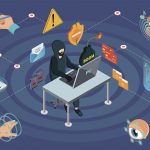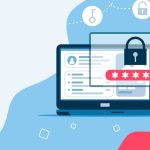Why and How to Protect Online Privacy and Secure Internet Connection?

Trying to protect online privacy when we access the Internet is a responsibility we should all take very seriously. We say that because, unfortunately, while we’re online we’re practically sitting targets for numerous threats and we’re exposed to a lot of risks. But, as they say, knowledge is power, therefore the more we learn about this topic the better we know how to protect ourselves.
Table of contents
- What Is Online Privacy?
- Why Do You Have to Protect Online Privacy on the Internet?
- How to Protect Your Privacy on the Internet?
- How VPN Protects Your Privacy and Helps You Surf Anonymously Online?
- What is Secure Connection?
- Why do You Have to Secure Internet Connection?
- How VPN Secures Your Internet Connection?
- Online Privacy Protection is Always Important
What Is Online Privacy?
So, what is online privacy? It’s a term that describes the level of protection for our personal data when we access the Internet. How safe we keep our digital information while we are online. In order to achieve a satisfying level of online privacy we can use different techniques and technologies. But let’s further elaborate.
Why Do You Have to Protect Online Privacy on the Internet?
The online environment has become more than just an instrument that we sometimes use in order to complete specific tasks. It’s a place where we spend a big part of our lives. And also a place where we keep a lot of valuable possessions, regardless they have a personal character, like private chats with family and friends political beliefs and so on, or financial information like bank accounts details.
Considering all this it’s not difficult to imagine why somebody would want to snoop around or even steal your digital belongings. Starting with you ISP who has easy access to your browsing and may sell it to a third party or use it for slowing down your traffic for specific websites and the list is long.
You are exposed to threats like random hacker attacks, government surveillance, being profiled by websites for marketing purposes and so on. As long as you’re out there, there’s always the risk that somebody may try to gain something from invading your privacy.
How to Protect Your Privacy on the Internet?
There are numerous ways to protect your online privacy, some more efficient than others. Considering the level of security you want for you privacy you may choose the ones that you consider the most appropriate. Here are the ones we recommend you to consider:
Install Preventing Software
Depending on your online behavior, and considering the processing capacity of your device you should install one or more preventing software. If you do a lot of random browsing, or you like clicking on all the links you get from your friends and colleagues, it’s wise to insure a level of protection.
You can install anti-virus programs, anti-malware, spyware and activate your firewall. Of course, the more, the merrier because every one of these programs is designed to defend you from different threats in order to get some level of online privacy protection.
Lie to Websites
There are a lot of websites that ask a lot of personal information about you like age, sex, location, email and so on. Some of them have low security protocols so your data becomes vulnerable cu cyber-attacks. But that’s the least of your worries, because the vast majority of websites use your personal information for their own financial benefit by profiling you for better targeting you with advertising messages.
As Wall Street Journal says Facebook, for instance, is accused by half a dozen European countries for tracking users’ activity to sell more efficient advertising. But, like we’ve said, almost everybody does it so it gets more and more difficult for users to protect private data.
Cover Your Tracks
Browsing it’s like walking in the sand. You leave a trail every time you make a click. Except that this digital footsteps don’t just vanish after a while so you have to take care of it for yourself. Start with clearing the browser cache and browsing history on a regular basis.
Nevertheless, you should know that in our days there are software solutions to track your online activity without using cookies. Canvas fingerprinting is one of them. What identifies you as a unique visitor and then spies every move you make. But that’s no excuse to do the best you can. So clear browsing history and delete cookies from time to time.
Don’t Store Private Information on the Cloud
File-syncing platforms as Google Drive, Dropbox or ICloud are great and very efficient tools but you should think twice before leaving there information that has a personal character.
Sure, all this services have layers of protection and protocols of data encryption but all this safety measures are not strong enough to keep away a skilled hacker. He can break your account by using social engineering techniques or by finding flaws in the security server.
Play Safe with Free Wi-Fi Networks
Sure, is very tempting to access free Internet from the free Wi-Fi networks when we connect remote, but also very risky. When you connect to an unsecure network, such as a free Wi-Fi, you become exposed to cyber-attacks. And there are many easy to use techniques that will allow any wannabe hacker to break into your device.
Your passwords, the data you send or receive, your browsing history, your emails and chats, they all are at risk to be seen and stolen. So look twice at the places that give you free Wi-Fi. Or find a way to protect yourself. We have a solution for you if you read further.
How VPN Protects Your Privacy and Helps You Surf Anonymously Online?
And now we get to the part where we tell you what is one of the most efficient way to protect online privacy: well you will do just fine using a VPN service. A VPN is a network technology that creates a secure connection over the Internet. It’s safe because when you are using it you connect to a server run by a VPN provider.
This way all data traveling between your device and the VPN server is encrypted so that only you can see it. More than that we can talk about anonymous internet surfing. A VPN hides your IP and keeps your browsing history stealth from any prying eyes, including your internet provider. You can download torrents and visit any sites you want and all that in the sweet comfort of anonymity. Read more about why to use VPN and how VPN can help you.
Need a Reliable VPN Service?
We here at SmartyDNS offer high-speed VPN servers with military-grade 256 bit AES encryption and highly-secure VPN protocols (OpenVPN, SoftEther and IKEv2) and we adhere to a strict no-log policy.
Our VPN servers double as proxy servers and we also offer a Smart DNS service that lets you unblock 300+ worldwide geo-restricted websites.
We offer user-friendly VPN apps for Windows, Mac, iPhone/iPad, Android, and Fire TV/Stick and browser extensions for Chrome and Firefox.
Special Deal! Get SmartyDNS for $3.7/mo!
Oh, and we’ll also have your back with our 30-day money-back guarantee.
What is Secure Connection?
Now that we have discussed about how important online privacy is, what threatens it and what should we do to protect it let’s talk about what how you can make your entire online experience a safe from any risks. Let’s talk about secure connection.
A secure connection is a connection that follows specific security protocols and has a strong encryption software that assures a safe data transfer. Without these safety measure anyone can snoop in and steal your private information every time you go online. In order to really say that you have a secure connection you must make sure it follows three conditions:
- It has to be strong enough to keep third parties from hacking your private data;
- It must give access only to the entitled person of the device or stored data;
- It protects data from any outside threats.
Why do You Have to Secure Internet Connection?
There are important benefits you gain if you secure your internet connection. Your passwords, financial information, private chats and your entire browsing are safe from any prying eyes.
Even if you access a free WI-FI, you are completely safe from any cyber-attacks. More than that, you are protected against Deep Packet Inspection from your ISP. Packet inspection is a method used to scan all data that comes and goes from your device.
Your personal information like your location, shopping records and actually your entire browsing is stored into packets of data that can be easily read by your Internet Service Provider if your connection is not secure enough.
How VPN Secures Your Internet Connection?
As we previously said a VPN service protects your privacy and keeps your information safe while browsing. Because it encrypts all data and online activity there’s practically no way a hacker could read it.
A VPN cloaks your traffic so what you do while you are online remains your business and nobody else’s. Because it hides your IP it’s also your best chance to obtain anonymity on the Internet. Besides that, with a VPN service you can access all the free Internet you want from public Wi-Fi networks. The encryption fully works here also, so even if somebody tries to hack you he couldn’t read your data.
Online Privacy Protection is Always Important
“Protect online privacy and secure internet connection” topic is always worth talking about because our digital life becomes more and more important.
In the same time, the invasive methods used by hackers and other third parties interested in our private information are getting more and more evolved.
So, it’s up to us to constantly keep our eyes open in order to achieve a level of security that will keep us safe. It like a game, where every time the adversary makes a move, we have to prepare a response, or we lose points. Or in this case, something far more important. An important part of our privacy.




